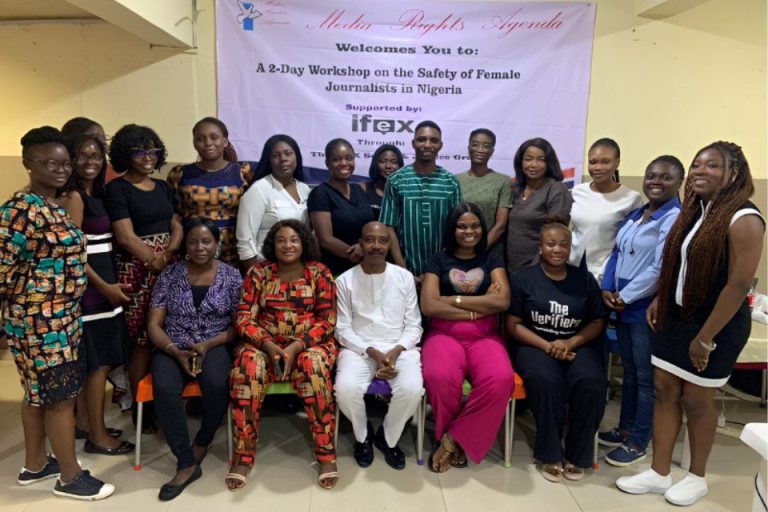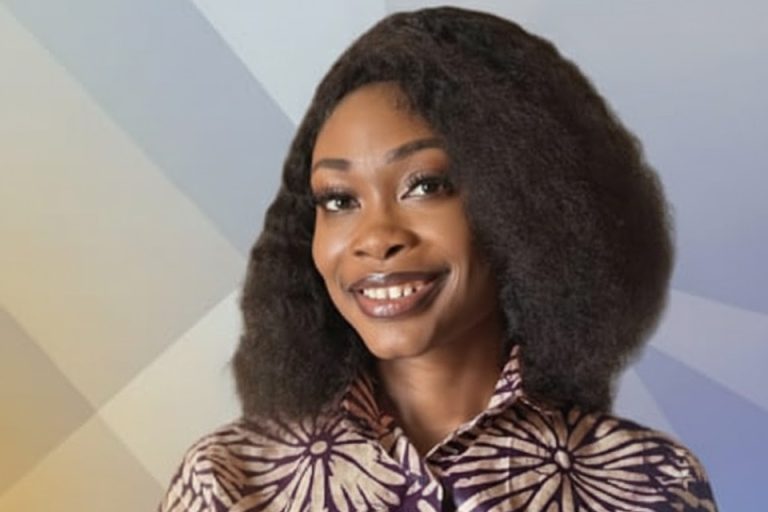Female journalists have called on Federal and State Governments across Nigeria to ensure that thorough investigations are conducted into all attacks against journalists, while perpetrators are prosecuted and punished in accordance with the Law. They made the call in two workshops organised by Media Rights Agenda (MRA) in Lagos and Abuja to address the growing threats faced by female journalists in Nigeria.
The first workshop took place at the International Press Centre (IPC) Conference Hall in Ogba, Lagos, on July 29 and 30, 2025, while the second was held at the Haris Hotel in Abuja, on August 12 and 13, 2025. Both events were supported by the Toronto, Canada-based International Freedom of Expression Exchange (IFEX) through its Safety and Justice Grant.
The Lagos workshop brought together 24 participants, while the Abuja event had 27 attendees, comprising female journalists from government and privately-owned outlets across print, broadcast, and online sectors. Resource persons included media proprietors, editors, civil society activists, legal practitioners, and practising journalists. In Lagos, MRA’s Deputy Executive Director, Mr Ayode Longe, noted that female journalists frequently face targeted, subtle, and blatant attacks because of their gender, as well as their professional calling as journalists. He stressed the importance of equipping them with knowledge and skills to document violations, seek redress, and continue their work without fear.
Discussions during the workshops highlighted that female journalists in Nigeria face harassment, intimidation, sexual violence, cyberbullying, and other gender-specific attacks. Participants pointed out that such violations not only endanger individual journalists but also undermine media freedom, democracy, and the public’s right to information. They expressed concern over the prevailing culture of impunity, saying perpetrators, including security agents, political actors, and online abusers, are rarely held accountable. Participants also lamented that many media organisations fail to support journalists under attack, leaving them vulnerable and isolated.
Another key issue raised was the absence of gender-sensitive safety policies in newsrooms and regulatory institutions. Participants noted that existing frameworks for journalist protection do not adequately address gender-based threats, creating conditions where such attacks are normalised. They stressed that the government must publicly condemn attacks on journalists and ensure thorough investigations and prosecutions, while legislatures should review laws to explicitly safeguard female journalists from gender-based threats and violence.
Media employers were also urged to adopt workplace policies that address harassment, whistleblower protections, and psychosocial support. Employers, participants added, must provide legal aid, digital and physical security training, safe transportation, and secure accommodation, especially during high-risk assignments such as elections and protests.
Families, unions, and associations were encouraged to provide legal, emotional, and institutional support to women under threat, while journalists and stakeholders were urged to work with security forces to create effective protection strategies. Participants also recommended the establishment of a national protective network of female journalists, possibly anchored by the Nigeria Association of Women Journalists (NAWOJ), to foster solidarity and joint advocacy.
Emphasis was also placed on the need for capacity building, with calls for regular training on threat assessments, mentorship, and peer support systems. Participants further stressed the importance of mental health and well-being, urging female journalists to take adequate rest and utilise leave entitlements to avoid burnout, while media houses were called upon to establish open-door policies to encourage younger female journalists to report harassment or threats without fear.
At the close of both workshops, participants reaffirmed their commitment to defending their rights and advancing their safety, while calling on government, media organisations, civil society, and development partners to recognise that protecting female journalists is central to press freedom, democracy, and national development.





